Apple and litchi production likely to get affected as honey bees are “locked up” inside their boxes
If honey bees, locked inside bee boxes, do not get a favourable food and climate at the right time, it will have an impact on honey, apple and litchi production due to non-pollination

With the corona lockdown, not only humans but also bees have also been imprisoned in their homes (boxes). For most bees, it was time for migration (moving from one place to another) due to which millions of bees have reached the brink of death.
If these bees do not reach favourable food and climate at the right time, not only will the honey production in India be reduced considerably, but also the apples and litchi production will be affected by the non-pollination.
Arvind Saini is the beekeeper of Saharanpur in Uttar Pradesh and has been beekeeping in different states for the past 18 years. At present, his 20,000 boxes are in Bundi district of Rajasthan which are worth close to Rs 45 lakh to 50 lakh.
His trouble is that the bee starts dying above 30 degree temperature and Rajasthan’s temperature has reached around 40 degrees. The boxes are kept in the sun and Arvind is in lockdown in his home in Saharanpur.
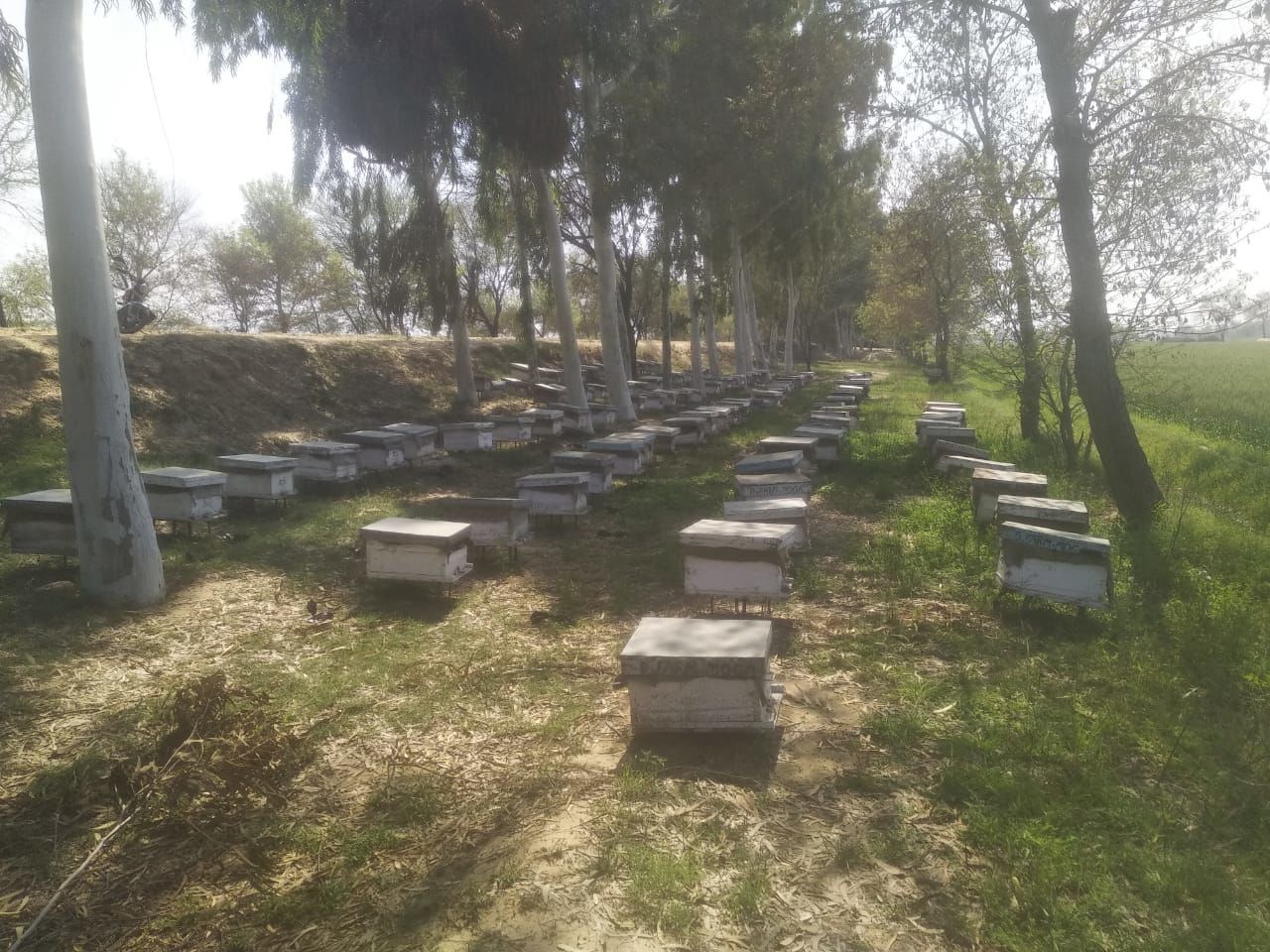
Arvind said: “Before the lockdown I had returned home in Saharanpur. Only one person is left there while we are stranded in Saharanpur, there is huge problem is before us. I request the government to allow me to facilitate the migration and rescue my bees.
Similarly, Jaswinder Dhaliwal, a Moga resident in Ludhiana, Punjab, roams with the bees colony (boxes) across various states in the country. At the time of mustard, in Rajasthan and Punjab, for the apples of Himachal he goes to the plantations in the summer. But because of the lockdown, he is stranded in Punjab while his bees are in Rajasthan.
Dhariwal said over the phone: “We have 600 boxes, at this time I should have reached Himachal, but the police are not allowing us to leave Punjab. There are so many beekeepers like us who are stranded in Rajasthan.”
Like Jaswinder, Rakesh Gupta from Uttar Pradesh is also upset. His boxes are also in Rae Bareli. In March, he was going to take them to litchi plantation in Uttarakhand.
He said: “Presently, my bees are in Rae Bareli, they had to take them to Uttarakhand and Himachal Pradesh, but I could not do so because of the lockdown. Rae Bareli or Rajasthan there is no crop where the bees can produce food, we are facing this difficulty and feeding them with sugar.”
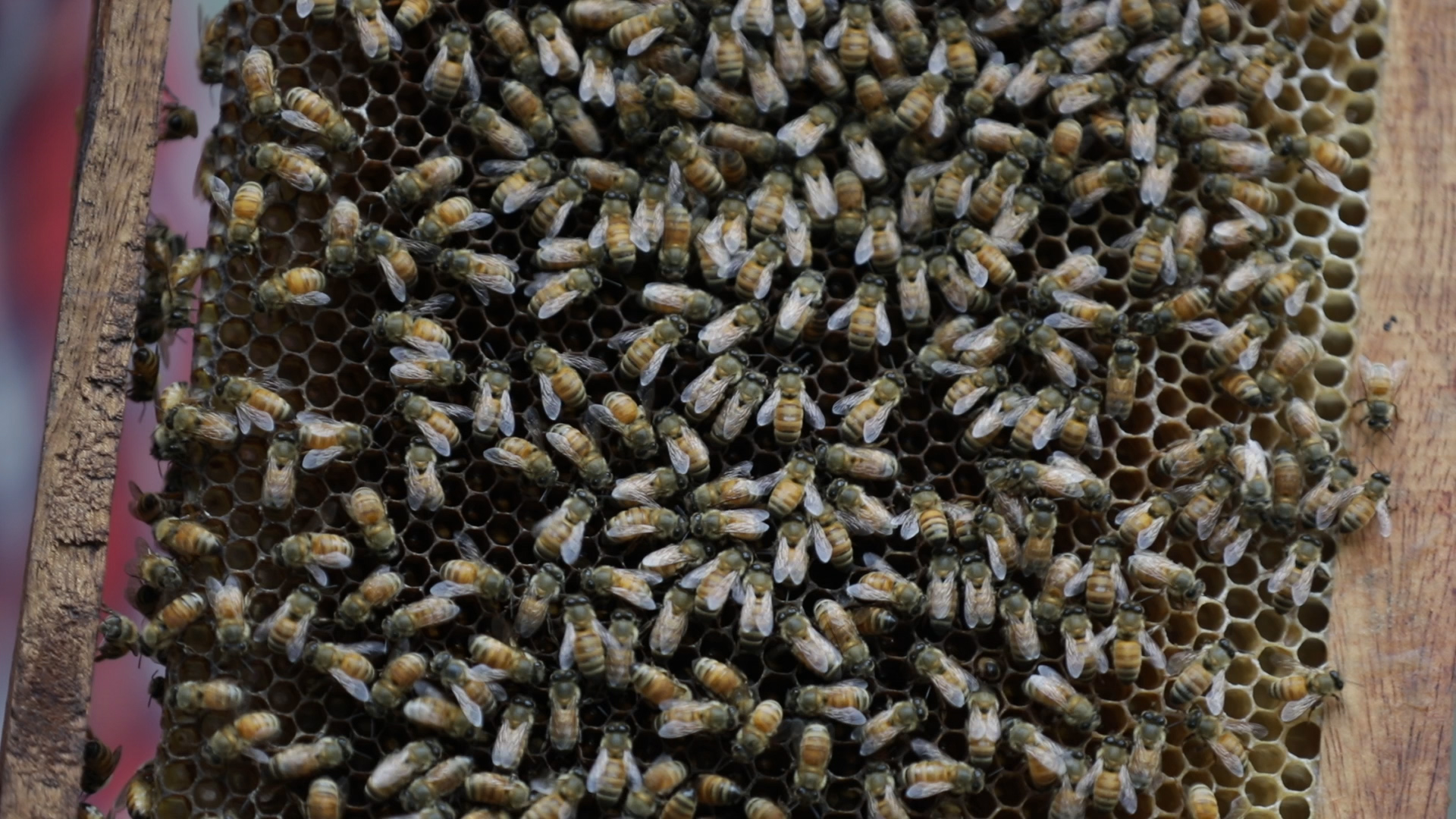
The year 2019 has already been difficult for the beekeepers. The inclement weather has brought down the annual honey production by more than half in many states.
Nimit Singh, beekeeper and expert from Lucknow, informed: “This time, after an unusually cold winter in November, the rain in January February had reduced honey production and now the lockdown, this time we are going to suffer a lot.”
Every year, thousands of beekeepers from Punjab, Haryana and Uttar Pradesh load their bee boxes in trucks to reach the Malihabad mango belt in Uttar Pradesh and litchi areas like Muzaffarpur in Bihar, Uttarakhand and Himachal Pradesh but this time due to the lockdown were left where they were. Coupled with the problem of food, the rising temperature is posing a huge problem in front of these people.
There is a time for migration of bees from March 20 to April 20. Dushyant Singh, the national president of the Beekeeper Welfare Society, said: “Bee can survive from 26-27 degrees to 30 °c and now migration to Rajasthan, Madhya Pradesh, Uttar Pradesh, other states is very important by which the bee can be saved. Migration is suffering enormous problems and the small-scale beekeepers are on the verge of going out of business due to the lockdown.”
Beekeeper farmers, scientists and apple, litchi plantation owners are also deeply disturbed. Dr Dinesh Singh Thakur, the principal scientist of Dr YS Parmar Horticulture and Industrial University, located in Shimla, Himachal Pradesh, said: “If there are no bees, the production will be affected, because apples do not have pollination through air but through bees, there are beekeepers in Himachal, but are not as many to cover the entire area.”
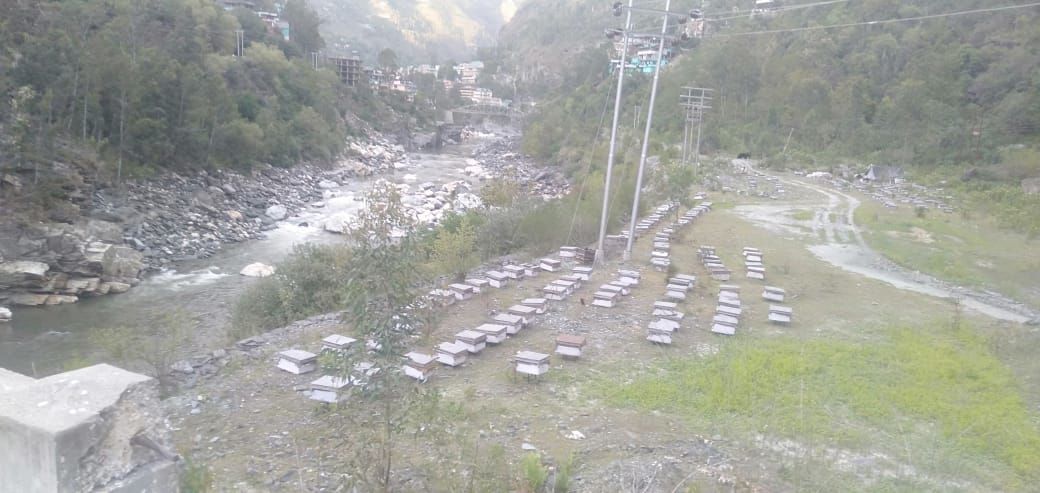
Bhim Singh Negi of Kinnaur in Himachal Pradesh also said: “I cultivate apples and do beekeeping, all my bees that were across Himachal had been brought back, but there are still many trapped in Uttar Pradesh.”
Besides apples, bees are also essential for litchi production, in many states like Uttar Pradesh, Bihar, Uttarakhand, Punjab, litchi is grown, but this time beekeepers have not been able to reach here too.
According to the beekeepers, hardly 10-15 per cent of the bees have reached Muzaffarpur. “This is the right time when bees help in pollination of litchi, beekeepers from Bihar as well as people from Uttar Pradesh have not been able to come this time, if there are no bees, the production is bound to be affected,” says Dr Vishal Nath, director, Litchi Research Directorate, located at Muzzafarpur in Bihar.
The mustard fields of Uttar Pradesh and Rajasthan, where the honey bees boxes were kept, had been reaped and the sunshine has also intensified with the rise in temperature, making it difficult to save the bees.
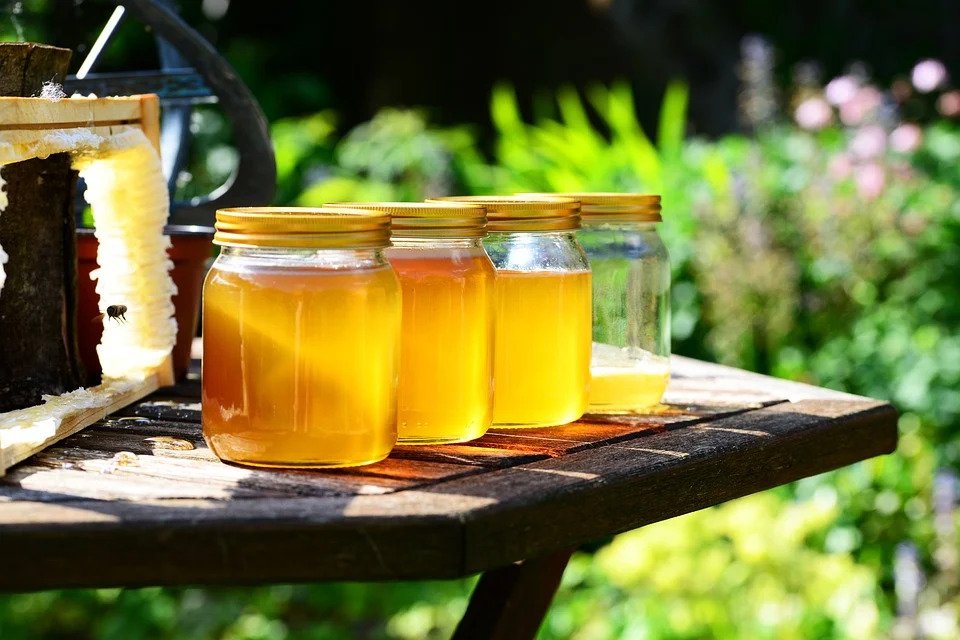
“Wherever we have kept our boxes, they are not getting shade and the bees are dying from the bright sun. We are not even able to feed our bee with sugar slurry, if we go to buy sugar in the market, people feel that we are stocking up sugar. This is why we are unable to get sugar. If we have 50 boxes, at least 50 kg of sugar is needed,” said beekeeper Nimit Singh.
According to the Beekeeper Welfare Society, there are about 15 to 20 thousand beekeepers who come from Meerut, Saharanpur, Moradabad, Muzaffarnagar, Rampur, Bulandshahar, Aligarh, Mathura, Faizabad, Firozabad, other districts. Moreover, if we come to other states, about 20,000 beekeepers from Rajasthan and about 25,000 beekeeping from Harayana are facing a big crisis.
“There is a big crisis of migration before the beekeepers and we want the government to allow our three to four people for migration. If it does not happen, we will not be able to keep the bee alive,” explained Dharamraj Singh, the state president of the Beekeeper Society at Uttar Pradesh.
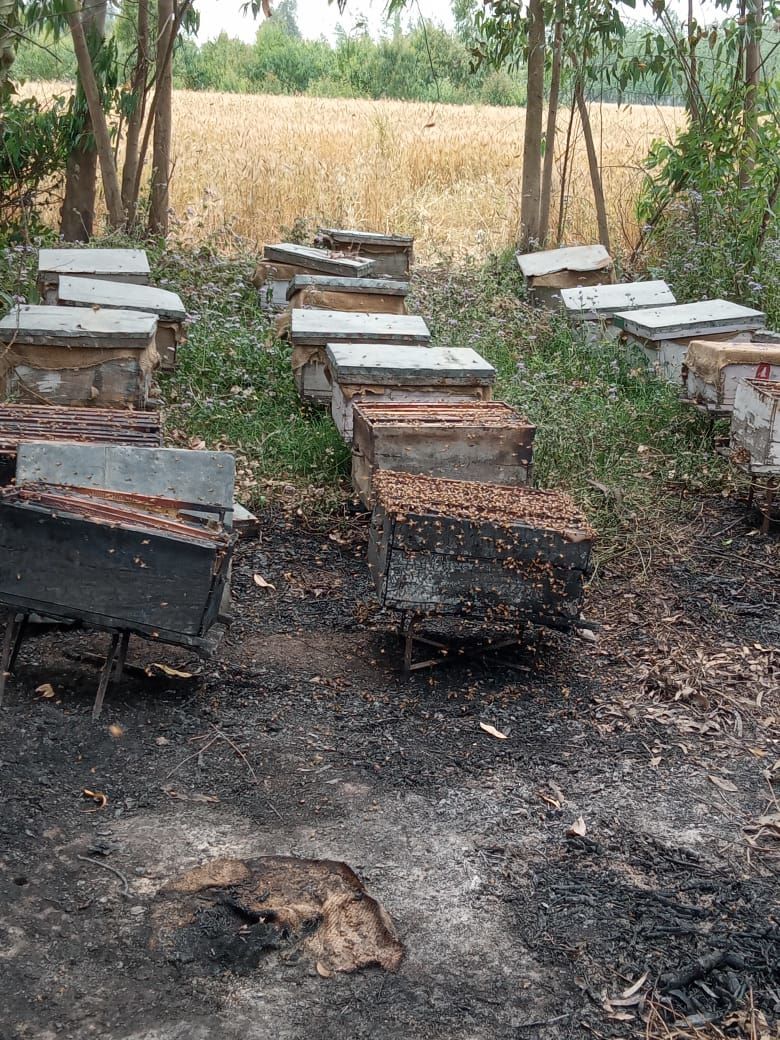
He pointed out: “Bee boxes of a farmer living in Rampur were kept in Tanda town. Due to lockdown, he could not go to the bees and his 42 boxes of bees got burned causing him a loss of more than one lakh.”
The Narendra Modi government has given a lot of emphasis on honey production since its first term. Khadi and Village Industries Commission (KVIC) has launched the honey mission to promote beekeeping, the honey mission was launched by Prime Minister Narendra Modi from Banaskantha in Gujarat. India’s honey also has a lot of demand in countries around the world, but this time farmers are suffering.
According to Agricultural and Processed Food Products Export Development Authority (APEDA), 61,333.88 metric tonnes of honey was produced worldwide in the year 2018-19. There are major exporting countries like USA, UAE, Morocco, Saudi Arabia, Qatar.
(Input: Mohit Saini, Meerut)

